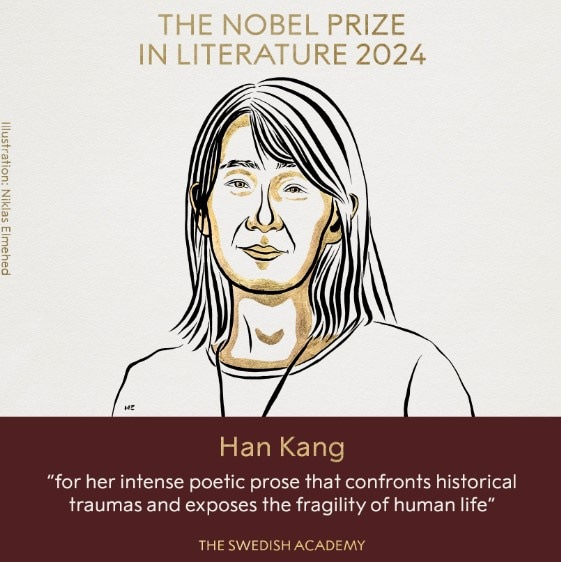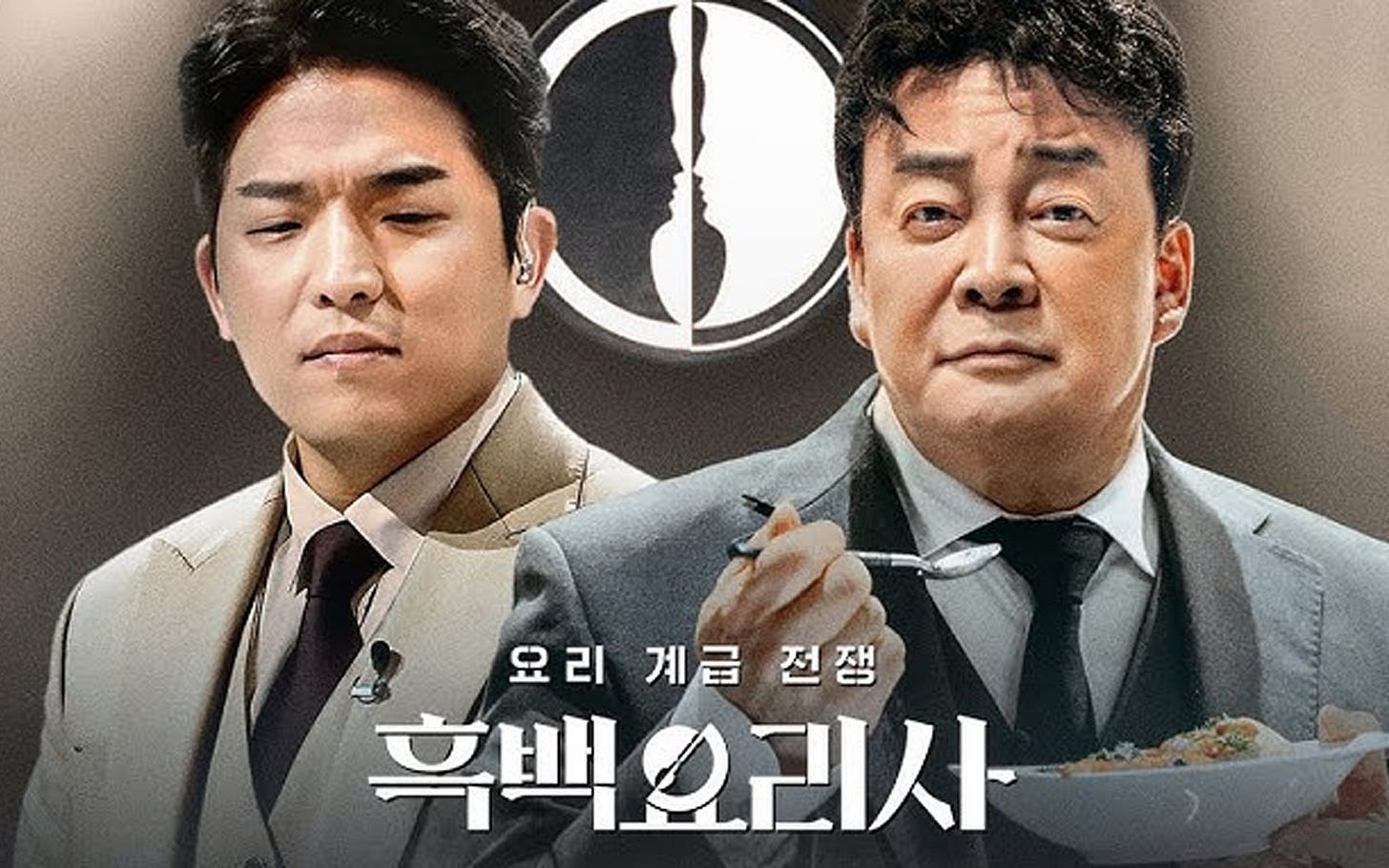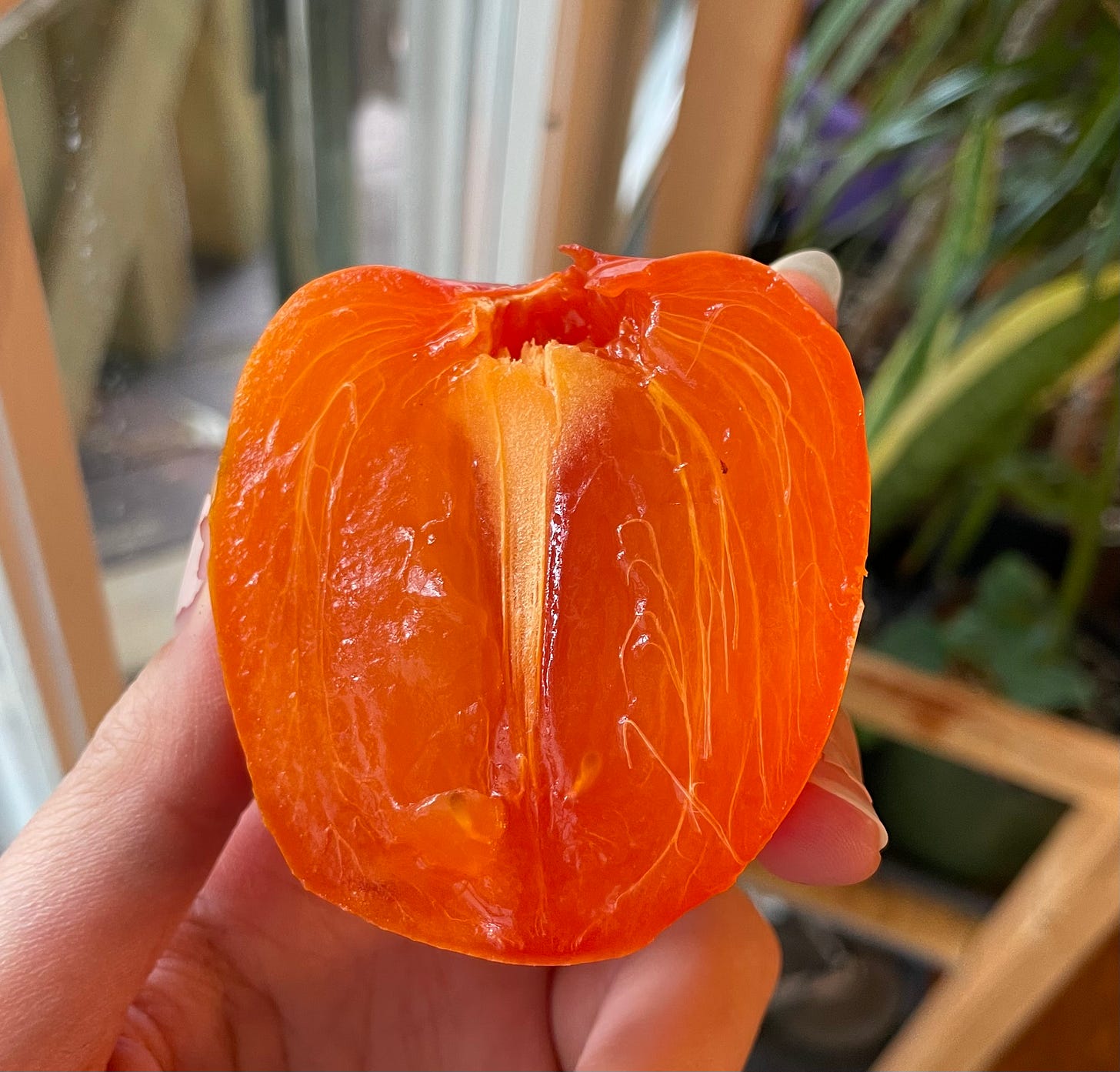Welcome to the October edition of Rec Center! See my recs from September and August. New book review will be up soon; I mean it, this time.
Human Acts by Han Kang
It’s a good month to be a Korean woman. Han Kang has won the Nobel Prize in Literature. How did I learn the news? My mother texted me a link to the announcement and informed me that I have 22 years to win my own Nobel.
I’ve read two of her books— The Vegetarian and Human Acts. They are both worthy and difficult books. The Vegetarian is a deeply unnerving portrait of a woman suffering in slow motion. Human Acts is a harrowing chronicle of the violence used to suppress the Gwangju Uprising, a pro-democracy movement, in 1980.
As a Korean American, I often have to remind myself how recently South Koreans had to fight for freedom and democracy. After independence from Japan in 1945, South Korea was ruled by a series of dictators from 1948 until 1988, when truly democratic elections were finally implemented under overwhelming pressure from a mass protest movement that leveraged the international community’s scrutiny of the government in the lead up to the 1988 Seoul Olympics. Human Acts provides a street-level, fictionalized account of one of the earlier, unsuccessful pro-democracy student movements in Gwangju.
For some reason, The Vegetarian has gotten the most attention in the English-speaking world, but I enjoyed Human Acts more and encourage it as a starting point. The latter feels more grounded to me, while The Vegetarian has the tenor of a nightmare. I’ve been meaning to read her more recently translated book, Greek Lessons, so keep an eye out for a full review soon-ish.
Rabid (1977) by David Cronenberg
It’s the right season for David Cronenberg’s grotesque creations. Regular Rec Center readers will know that I’ve been on a low key Cronenberg binge since the summer. This month, I checked a few off of my list: The Brood, The Fly (with Jeff Goldblum), and Rabid. Of the bunch, I enjoyed Rabid the most. Starring porn actress Marilyn Chambers, it’s the story of a reconstructive surgery gone wrong. Ultimately, one woman’s misfortune ignites an epidemic of exponential growth. I’m frankly shocked that Rabid wasn’t resurrected in the discourse back in 2020 when everyone was freaking themselves out by watching Contagion and 28 Days Later and Train to Busan. Maybe someone was talking about it, but it wasn’t on any of the lists of “best pandemic movies” I saw at the time.
Aside from being a fun entry in the outbreak/epidemic genre, it has all the classic Cronenberg traits: it’s funny with surreal touches, it’s a little bit gross, and more than a little bit sexy. If you’ve seen and been scarred by The Fly, it’s a lot less repulsive than that, but there’s still a moderate dose of prosthetics that might make your skin crawl just a smidge. It’s a solid Halloween Eve watch.
Culinary Class Wars
I grew up watching the original, Japanese version of Iron Chef with my family. We loved the drama, the ingenuity, and most of all the food. Each week, we’d tune in to Kitchen Stadium with bated breath to see what the secret ingredient would be. In the 2000s, as cooking competition shows proliferated, I gradually lost interest. Iron Chef America just couldn’t match the energy, costumes, or personalities of the original, and I couldn’t stand Bobby Flay. I mean, just check out the opening sequence. Hell’s Kitchen, Top Chef, and The Great British Bake-off each have their own gimmick, but none could really hold my interest.
Culinary Class Wars, the South Korean sensation currently streaming on Netflix, is a game-changer. Equal parts Iron Chef and Squid Game, it had me staying up well past my bedtime for just one more episode every day this past week. The personalities are compelling, the backgrounds are diverse, the challenges are inventive, the twists are outrageous, the judges are a mixture of entertainingly brutal and charmingly gracious, and the food is gorgeous. The cuisine skews Korean but there are a variety of Asian and Western culinary traditions represented on the show. I don’t think I’ve ever been this captivated by a reality/contest show before.
Culinary Class Wars has my highest recommendation. Watch it, but make sure you have a snack prepared. It will have you drooling.
My Old Drunk Friend by Freakwater
90s alt-country girl duo Freakwater are more country than alt. Most of their albums include covers of old timey classics, and they wouldn’t sound out of place in a playlist with the Carter Family or Dolly Parton and Porter Wagoner. But in their original songs, they insert just enough attitude to give them an edge. I’ve been listening to their album Feels Like The Third Time (1993) a lot this month.
I’m particularly fond of this song, which captures so well a very specific kind of friendship.
My old drunk friend
It’s good to see you again
Every time you walk in
I should run the other way
My old drunk friend
You’re looking kinda thin
I won’t ask where you’ve been
You never wanna say
I have a friend like this. I bet you do too.
Persimmons
It’s persimmon season, baby! I’m partial to the astringent varieties because my grandmother had a Hachiya tree in her backyard in Los Angeles. She would send my family boxes of them every winter, carefully individually wrapped in newspaper, and we’d wait impatiently for the plump orange fruits to soften. When they look like they’re about to burst and rot, they’re ripe and ready to eat. The flesh, otherwise astringent and bitter, undergoes a magical metamorphosis and becomes intensely sweet, juicy, and almost custardy in texture. To eat a perfectly ripe persimmon is a transcendent sensual experience.
I’m less wild about the flat, non-astringent Fuyu variety, which I never tried until a couple of years ago. You can eat them either crisp or soft enough to scoop with a spoon— if you let them get really soft, they taste a lot like ripe Hachiya persimmons, but at least of the ones I’ve tried, the Fuyu seem a little stringier in texture. However, they are more common and easier to find in grocery stores, so they’re worth trying if that’s all you can find. I’ve mostly found Hachiya persimmons at Asian grocery stores or fruit sellers, whereas our local Costco is currently selling packages of Fuyu persimmons.
Last year, I planted a Hachiya tree in my backyard. I lack the skill my grandma had in her garden, but I hope that in a few years it might yield a persimmon or two. Maybe, eventually, it’ll grow so many fruits that I’ll have to ship them across the country to the people I love, too.








Han Kang is so good, I was so happy for her when she won the Nobel.
I started reading her back when The Vegetarian got translated and she started to get all the international attention; and even though that's what got me into her work, its probably my least favorite book by her (altho it's still really good). Like you said Human Acts is so devastating, and Greek Lessons and The White Book are really great too and so beautifully written (and sad too, but a different sort of sad).
I think her upcoming translated book "We Do Not Part" combines the best virtues of all these and I hiiiiighly recommend that when it comes out (also devastatingly sad tho).